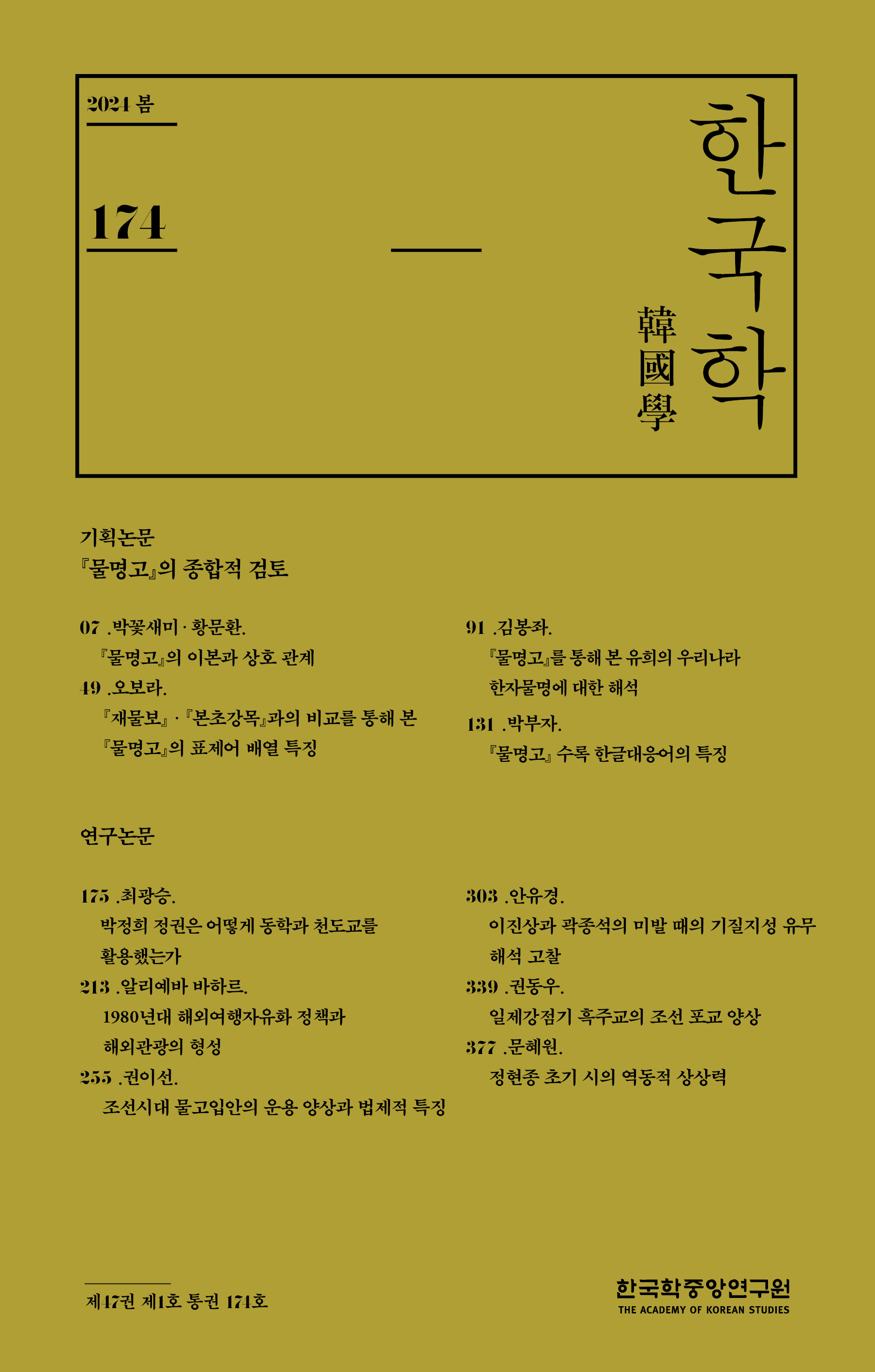
- P-ISSN 2671-8197
- E-ISSN 2733-936X
필자는 본 논문에서 주자학에 있어 혼백에 관한 이론적 체계를 분석하고, 그것과 심성론과의 관계, 특히 지각의 문제와의 관련성에 초점을 맞춰 설명한다. 전통적으로 혼백 개념은 인간의 귀신을 의미했고, 주자학 역시 그 전통 아래에서 혼백론을 인간학으로서 취급하는 경향을 내보인다. 그러나 주자학에 있어 혼백을 설명하는 관점과 방식은 이전의 사상과 달랐다. 귀신은 음양 같이 지각(知覺)에 사용되는 형식적, 선천적, 명목적인 개념으로 전환되지만, 혼백은 지각 주체인 마음의 실체성을 의미하는 것으로 간주된다. 필자는 혼백과 귀신 개념의 분석을 통해서 주자학에 있어 지각론이라는 주제가 큰 비중을 차지함을 증명할 것이다. 그러나 이와 동시에 또한 제사 감격을 정당화하기 위해 혼백 개념을 끝까지 버리지 않은 사실로부터 우리는 주자학의 또 다른 모습을 보게 된다. 그것은 아마도 실천적 정치적 관심과 관련될 것이다.
I will analyze and explain the construction of the theory of human soul and its relation to the concept of mind and nature (xin-xing) in Neo-Confucianism in this paper by especially focusing on epistemological issues. Traditionally the Confucian concept of soul (hun-po) means the ghosts and spirits (gui-shen) of human beings. Under this interpretation, Neo-Confucianism also has a tendency to deal with soul as a subject of study on human beings. Neo-Confucianism, however, differs in methodology and perspective from previous thoughts through which it is explained. While the concept of gui-shen is transformed into the formal, a priori, and nominal concepts which are used in cognitive awareness (chih-chüeh) like yin-yang in Zhu Xi's philosophy, soul is regarded as the entity of the mind, which is an agent of cognitive awareness. I will provide evidence that epistemological issues were given much more weight in Neo-Confucianism by analyzing these concepts. At the same time, however, another aspect of Neo-Confucianism is that the concept of soul (hun-po) has been never thrown away in order to justify sacrificial rites where, by Zhu Xi's thought, the ritual performer can feel the arrival of the soul of the deceased. This aspect is probably related to practical and political interests.
朱熹集, (1996) 郭 齊尹 波 點校, 四川敎育出版社
(1996) 春秋左傳正義,
김우형, (2005) 주희철학의 인식론: 지각(知覺)론의 형성과정과 체계. , 심산출판사
범학사, (1980) 中國人의 靈魂觀 朱子哲學과 中國哲學,
박성규, (2005) 주자철학의 귀신론, 한국학술정보
박지현, (2002) 중국의 영혼관과 혼백설,
三浦國雄,, (2003) 주자와 기, 그리고 몸., 예문서원
吾妻重二, (2004) 朱子學の新硏究: 近世士大夫の思想史的地平, 創文社
友枝龍太郞, (1979) 朱子の思想形成, 春秋社
張立文, (1981) 朱熹思想硏究, 中國社會科學出版社
Ching, (2000) The Religious Thought of Chu Hsi. , Oxford: Oxford University Press
Kim, Yung-sik, (2000) The Natural Philosophy of Chu Hsi(1130~1200). , Philadelphia: American Philosophical Society
Tillman, (2004) Zhu Xi’s Prayers to the Spirit of Confucius and Claim to the Transmission of the Way,